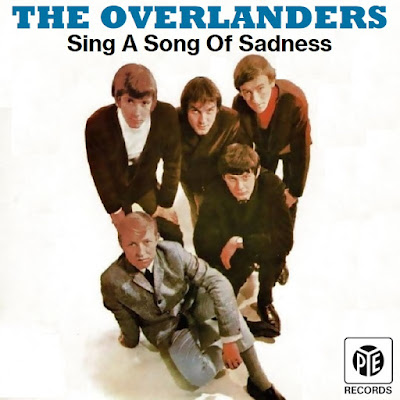'Byrdmaniax' was The Byrds' tenth studio album, released in June 1971 on Columbia Records, and is generally regarded as the low point of the band's illustrious career. There are a number of reasons for this, of which two are indelibly linked, and they are that the band didn’t bring great material to the studio to begin with, and so without telling the band, producer Terry Melcher brought in an orchestra and backing vocalists to embellish what he (probably rightly) felt was an underwhelming collection of songs. After the release of the Byrds' '(Untitled)' album, the band continued to tour extensively throughout late 1970 and early 1971 in support of the record, and with their career experiencing a revival of commercial fortunes, they elected to continue working with Melcher, who had produced their two previous albums. Unfortunately, the gruelling pace of the band's touring schedule meant that they were under-prepared for the recording of their next album, with little or no time to develop the material that they intended to include. Sessions commenced on 6 October 1970, just three weeks after the release of '(Untitled)', and continued throughout January and March 1971, but the group only managed to record twelve new songs, and so to make up an album's worth of material they revisited an outtake from the '(Untitled)' sessions, 'Kathleen's Song'.
The album opens with 'Glory, Glory', a gospel song given a folk-rock treatment from McGuinn and the band, that is partially returned to its original gospel roots through the addition of a female choir. 'Pale Blue' was written by McGuinn and Gene Parsons, and is one of the album's highlights, but was buried by overproduction, while 'I Trust', based on McGuinn’s own personal, positive outlook, is another winner, though again Melcher does the band no favours. What follows are a pair of tracks written by Skip Battin and the sinister Kim Fowley that have absolutely nothing to do with The Byrds, with 'Tunnel Of Love' being a hackneyed melody married to cryptic lyrics, while 'Citizen Kane' is harder to shake, with its image of Hollywood excess, a sort of hell on earth, set to an ingratiating music hall melody, as if a psychedelic rock band were trying to be The Beatles or The Kinks circa 1968. 'Absolute Happiness' falls into that strange category too, and you have to wonder if Battin hadn’t wandered into the wrong band. The song-writing partnership between McGuinn and Jaques Levy leads to more predictable results, even though 'I Wanna Grow Up To Be A Politician' isn't as clever as it thinks it is, 'Kathleen's Song' is perhaps the prettiest song on the whole album. At the other end of the creative spectrum, Clarence White co-authors the banjo/mandolin/fiddle fireworks display, 'Green Apple Quick Step', and cherrypicks two covers to sing, 'My Destiny' (which is mugged in the final mix) and Jackson Browne's 'Jamaica Say You Will', which Browne himself would release on his debut album the following year.
Following the completion of sessions for the album in early March 1971, the Byrds headed out on tour again, leaving Melcher and engineer Chris Hinshaw to finish mixing the album. In The Byrds' absence, Melcher and Hinshaw brought in arranger Paul Polena to assist with the overdubbing of strings, horns, and a gospel choir onto many of the songs, at a reported cost of $100,000, and allegedly without the band's consent. When they heard the extent of Melcher's additions, The Byrds protested to Columbia, campaigning to have the album remixed and the orchestration removed, but the record company held firm, citing budget restrictions, and the album was duly pressed up and released. For his part, Melcher defended his actions by explaining that the band's performances in the studio were lacklustre and that the orchestration was needed to cover up the album's musical shortcomings, although he later admitted that his decision was a mistake, and that he should have called a halt.
The band themselves were far from happy with the album upon its release, being particularly vocal in press interviews about their dissatisfaction, and two years later Clarence White was still complaining to journalists that "Terry Melcher put strings on while we were on the road, we came back and we didn't even recognize it as our own album." The final nail in the coffin for the record was that, after the success of the sprawling double-album 'Untitled', they presented an album that was just 34 minutes long. After my previous experimentation with the MVSEP editing software, and at Paul's suggestion, I thought I'd see if I could improve this disappointing album by removing the strings, horns, and gospel choir, and ditching the despised 'Tunnel Of Love', replacing it with some out-takes from the same sessions. So here is a remixed, re-ordered, and longer version of 'Byrdmaniax', featuring only the band and with a new running order, so let me know what you think.
Track listing
01 Glory, Glory
02 Pale Blue
03 I Trust
04 Just Like A Woman
05 Citizen Kane
06 I Wanna Grow Up To Be A Politician
07 Absolute Happiness
08 Green Apple Quick Step
09 Think I'm Gonna Feel Better
10 My Destiny
12 Kathleen's Song
12 Nothin' To It
13 Jamaica Say You Will












